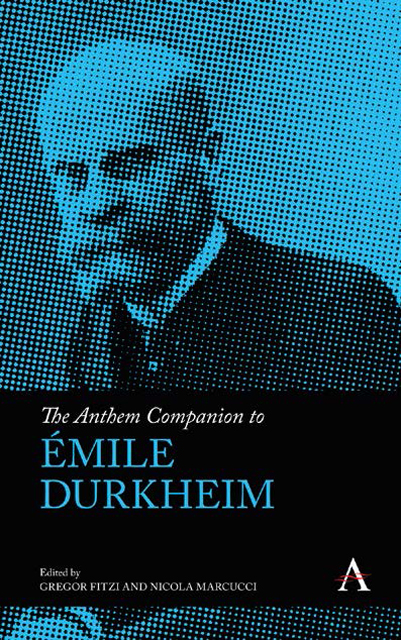Chapter 5 - Affinities, Antipathies and the Buddhadharma: The Genesis of Durkheim’s Concept of Religion
Published online by Cambridge University Press: 09 December 2022
Summary
The Durkheimian obsession with religion is altogether well known, if not entirely well understood. It has been the custom of social scientists, especially, to assume proprietary rights over the entire Durkheimian effort as a flagship launch of a scientific study of society. But the picture of the Durkheimian relation to religion, I suggest, implies a far more interesting and curious Durkheimian ambitions than what the conventional social science creation story would relate. What does one make of what can only be called an amazing poetic outburst about religion from one of Durkheim's closest confederates, Henri Hubert? Appealing to the imagery of something like a great sprawling Banyan tree, Hubert says,
In the midst of social life, religion has sprung up. It has burst into blossoms of prayer, sacrifice, mythology, morality, metaphysics, and even extravagant growths of magic. This tree has but a single trunk and its main branches are mighty. But so weighty are they that they bend to the ground. There, having taken root like the banyan, new branches spring up and hide the central trunk. As seasons pass and perspectives shift, the original shape of this tree changes so that one is hardly able to recognize it. Philosophers and historians mistake the tree for a forest – their error repeats the mistake of the early naturalists who defined beings in terms of external traits. But now we must clear way the branches and penetrate their sultry shade in order to catch a glimpse of the trunk. (Hubert 1904a, xlviii)
What I shall try to do is pierce some of that ‘sultry shade’ surrounding Durkheim's concept of religion. I shall be arguing that Durkheim's concept of religion emerged from attractions to and struggles with major ideological and, indeed, religious communities making up the discursive landscape of the study of religion in Paris's École Pratique des Hautes Études, Fifth Section – ‘Sciences Religieuses’. Even in what was, at least officially, an open laic academic environment of the Fifth Section, Durkheim and his confederates would discover that studying religion sociologically would inevitably pit them against the covert and overt religious agendas of some of their most powerful colleagues.
- Type
- Chapter
- Information
- The Anthem Companion to Émile Durkheim , pp. 99 - 128Publisher: Anthem PressPrint publication year: 2022

